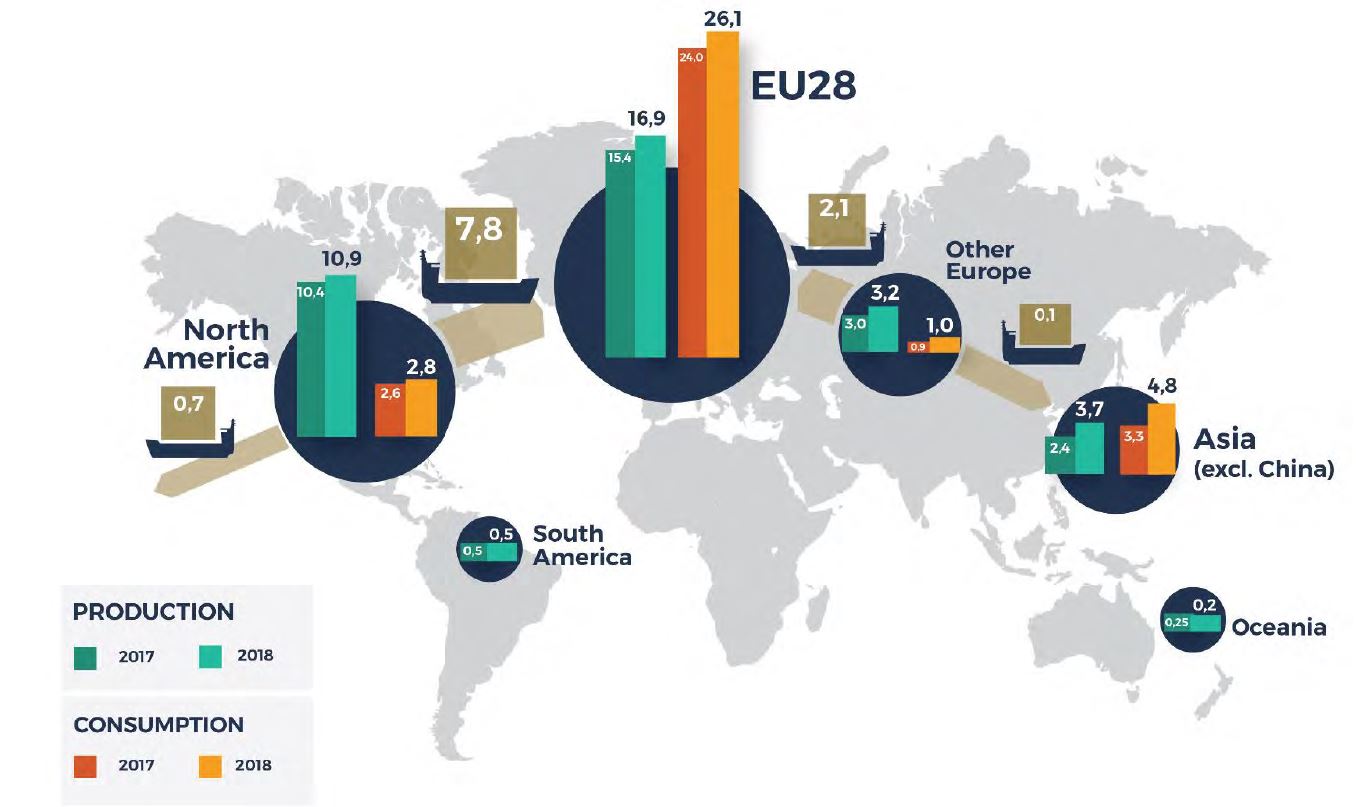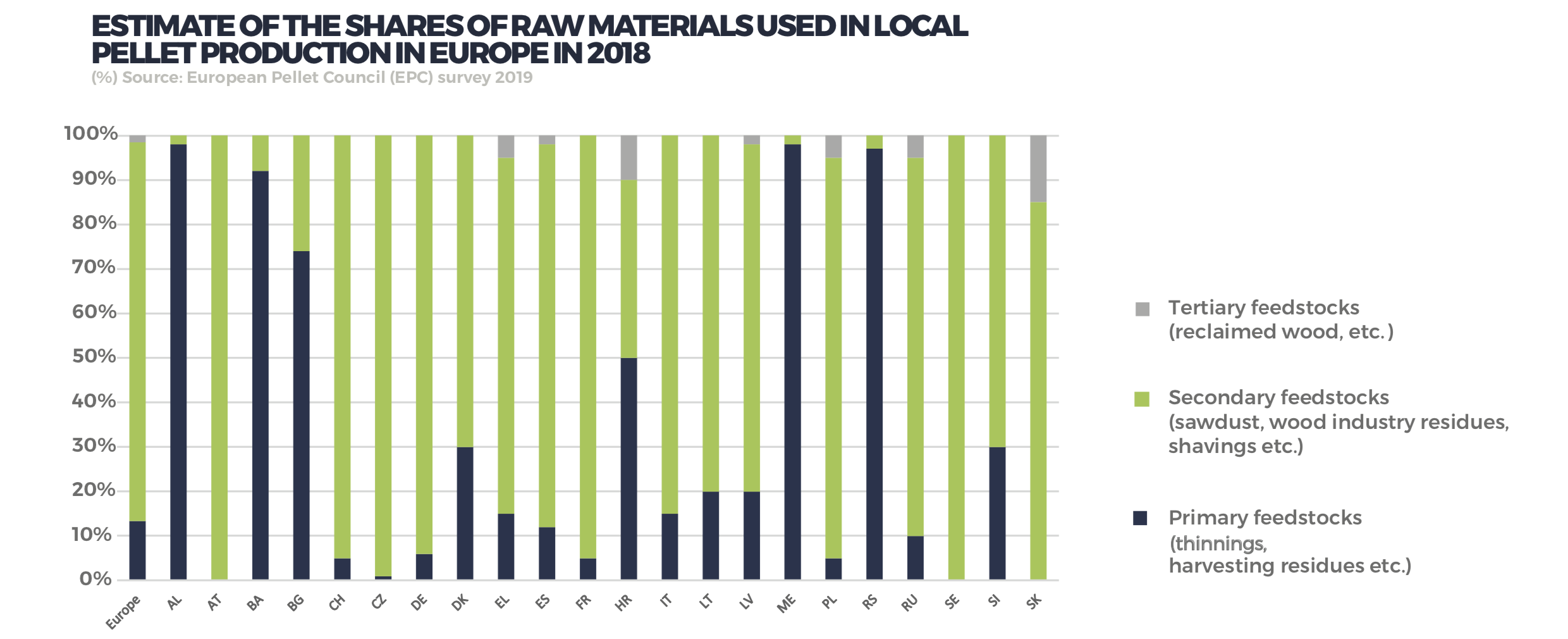
Wood pellets are a very versatile fuel which offer a sustainable and cost-effective solution for producing heat and power. As the EU28 will increasingly need to decarbonise fuel to meet its long-term climate objectives, versatile fuels such as pellets, that are non-weather-dependent, can be used for various energy needs and in turn will further contribute to the energy transition of Europe.
Data on Ukraine from Bioenergy Europe statistical report 2019:
- There are 313 plants in Ukraine that produced 390 thousand tonnes of pellets in 2018 (for comparison, in the EU-28 there are 719 plants that produced 16.9 million tonnes of pellets in 2018).
- 9 Ukrainian manufacturers producing about 160,000 tonnes of pellets have been certified under EN plus in 2018.
- The data for 2018 is a repetition of the data for 2017, ie there is a problem of lack of statistics on pellets in Ukraine.
- The pellet factories in Ukraine are underloaded.
With report studies and analysis surrounding the uptake of global pellet demand, statistics are continuing to show that the EU28 is producing nearly 17 million tonnes (nearly 10% growth in 2018 compared to 2017) of pellets; with production plants now being widespread all over Europe. This increase in production coinciding with the creation of new plants has led to local jobs and indeed value in the sector being created.
The sustained growth of this market, 4% between 2018 and 2017, exemplifies why pellets are leading the way in this ever-evolving market. Pellet used for heat production is a highly modern and effective solution. With its very high efficiency in combination with its release of extremely low emissions, this is a fuel that brings great benefits; proving itself as an effective renewable energy to aid in the transition for a cleaner Europe.
The sheer increase in the global pellet demand highlights its popularity as this bioenergy source continues to be used in both the industrial and domestic heating markets both in Europe and on a global scale. This enduring demand has enabled the EU28 to remain as the undefeated champions of the sector. Having said this, there is no doubt of the rising star on the global pellet scene, as Asia continues to go from strength to strength, rocketing in to a growing and somewhat dynamic marketplace.

The prices for pellets vary from 150 to 330 euros per tonne of pellets with VAT and depend on the country and the distance of transportation.

As a vast majority of pellet production takes place in rural areas, with wood pellets being produced from wood processing residues, not only nurtures rural development but aids in the crucial and indeed vital prevention of forest fires and diseases in these areas.
Download Statistical Report “Pellets” from Bioenergy Europe website
Policy brief on Pellets statistical report from Bioenergy Europe